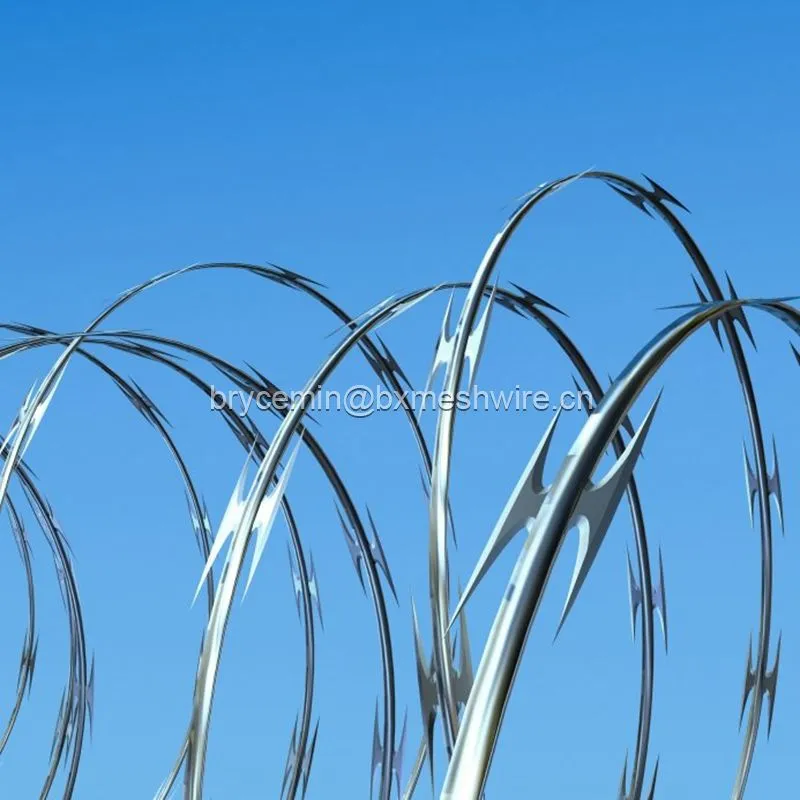What are the specifications for razor wire fence?
Razor wire fences are designed to provide a high level of security by incorporating sharp-edged blades or wire points along the fence line. The specifications for razor wire fences can vary depending on the specific requirements of the installation and the level of security needed. Here are common specifications for razor wire fences:
Material:
The core material of the razor wire is typically high-tensile steel wire, which provides strength and durability. The blades or points are often made of steel, and they may be galvanized to enhance corrosion resistance.
Blade Types:
Razor wire fences can have different types of blades or points, including straight blades, concertina blades, or clipped blades. The choice of blade type can affect the level of deterrence and the overall appearance of the fence.
Coil Diameter:
The coil diameter refers to the size of the spiral formed by the razor wire. Common coil diameters range from 450 mm to 980 mm. Smaller coil diameters are often used for higher security applications.

Coil Loops:
The number of loops in a coil can vary, with standard configurations ranging from 33 loops per coil to 102 loops per coil. The number of loops contributes to the density and effectiveness of the razor wire.
Wire Diameter:
The diameter of the steel wire used in the razor wire affects its strength and durability. Standard wire diameters range from 2.5 mm to 3.5 mm.
Galvanization:
Galvanization involves coating the steel wire and blades with a layer of zinc to enhance corrosion resistance. Galvanized razor wire is suitable for outdoor installations and provides long-lasting protection against rust.
Installation Options:
Razor wire fences can be installed in various configurations, including flat wrap, concertina, and spiral. The choice depends on the specific security needs and the desired appearance of the fence.
Security Brackets:
Security brackets are used to attach the razor wire to existing fences or structures. These brackets provide stability and ensure that the razor wire remains securely in place.
Barbed Wire Reinforcement:
Some razor wire fences may include additional barbed wire strands to reinforce the security barrier. The combination of razor wire and barbed wire enhances deterrence.
Tension Wire:
Tension wires are used to keep the razor wire taut and properly aligned. These wires contribute to the structural integrity of the fence.
It's important to note that the specifications for razor wire fences may be regulated by local authorities, and compliance with safety standards is crucial. Additionally, professional installation is recommended to ensure the effectiveness and safety of the razor wire fence.



